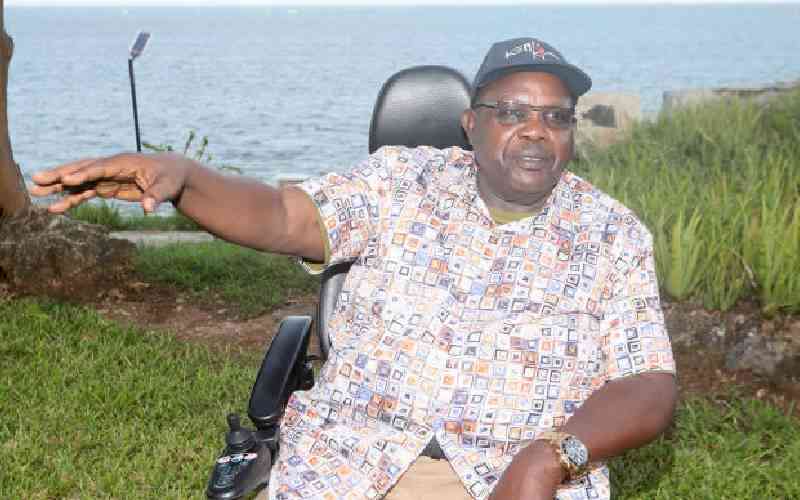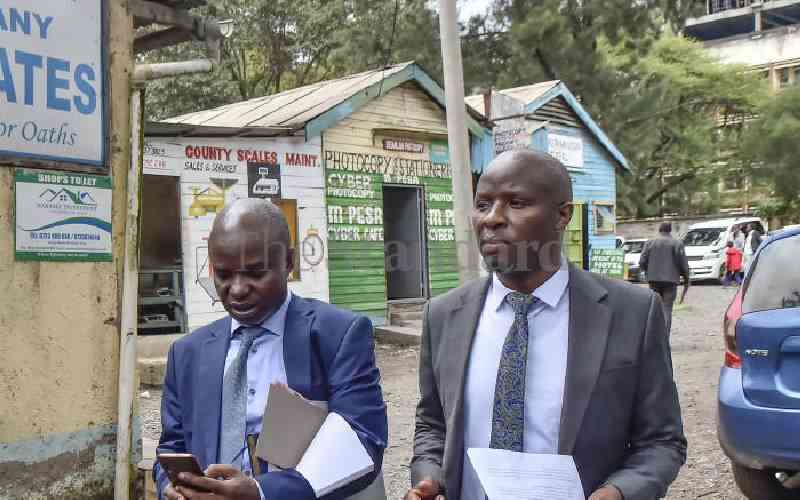On November 23, the President gave some directives on the fight against corruption, and declared it “a national security threat.” Somewhere towards the end of his speech His Excellency noted:
“In the past, my Government has issued some of the policy statements I have announced. I have not been satisfied with a lot of the implementation, partly in regard to poor coordination and the red tape involved in implementing a new constitutional dispensation. For this reason, from now henceforth, the Chief of Staff and Head of Public Service will be reporting to me on a weekly basis on progress in implementing the measures I have announced today”.
One wonders how frequently the Chief of Staff has so far been reporting to PORK (President of the Republic of Kenya)! That, however, is a puzzle we shall leave at the moment. Let us go back to the issue of “new measures” he announced on November 23.
So what were these measures that the PORK announced and how unique were they with regard to what we already know regarding the institutions of government and their responsibilities in the fight against corruption?
The only new things that the President announced were two. One, that the Private Sector Alliance had handed over to him a proposed Bribery Bill. Further that the implementation of this Bill, once passed by Parliament, will require positive engagement of the private sector with law enforcement agencies in government. Two, “that the Chief of Staff and Head of Public Service to design an Office of Management and Budget under the Presidency. The Presidency will produce a President’s Budget working with the Parliamentary Budget Office. This will ensure that I drive priorities, oversight and reduce influence peddling in budgeting, while ministries and departments concentrate on implementation and service delivery.”
All other things that the PORK said are more or less variations of the same directives he has given in the past but which were, according to him, not implemented due to “red tape and poor coordination.” It is for this very reason that PORK now wants to take direct responsibility for policy formulation, law drafting and budget making. We have already seen the sad consequences of Presidential attempts at law making with regard to amendments to the law governing the Auditor General’s office. We must guard against the reincarnation of presidential authoritarianism under the new Constitution simply because PORK finds the Constitution a menace to the system of government preferable to his regime. Let me explain further.
Regarding the Bribery Bill we shall not comment much until we read it. Suffice it to say, however, that it is Parliament that will finally breathe life into it. But my honest feeling is that it would be better to amend the Anti-Corruption and Economic Crimes Act rather than keep on feeding Kenyans with a plethora of laws aimed at achieving the same thing: fight graft and corruption.
What I find most unconstitutional is the PORK’s proposal to establish a budget office in his office so that he can drive the budget process. Chapter 12 of the Constitution of the Republic of Kenya is dedicated to public financing and very clear on the budgeting system and the budget process. Nowhere is the PORK involved except through his Treasury Cabinet Secretary. Article 221 (1) states that “At least two months before the end of each financial year, the Cabinet Secretary responsible for finance shall submit to the National Assembly estimates of revenue and expenditure of the national government for the next financial year to be tabled in the National Assembly.”
This Article in no way envisages the Chief of Staff as the prime mover, or driver, of the budget process in the executive branch. It is the CS in charge of finance, period. Further, it is the CS in charge of finance who is the accounting officer to Parliament on budgetary matters from the Executive branch. There are, however, other constitutional offices charged with specific aspects of Public Finance.
These are first, the Controller of Budget, whose office seems to be under threat by PORK’s proposed move. Second, the Commission of Revenue Allocation. Third, Auditor-General, whose office takes care of how public money is spent by all branches of government at the national and county levels. Fourth, the Salaries and Remuneration Commission which fixes emoluments in the public service. And finally, the Central Bank of Kenya, in charge of formulating monetary policy, promoting price stability, issuing currency and performing other functions prescribed to it by an Act of Parliament.
If the President feels any of these offices or institutions need to perform better, he only needs to get his Attorney General to propose a government Bill to be presented to Parliament for discussion. But it would be foolhardy for the PORK to turn his office into an oversight institution on matters of public finance. This proposal is unconstitutional ab initio. As he himself has previously admitted, the Office of the President is itself riddled with problems of corruption and non-accountability. How is the sick person going to turn around and prescribe medicine for his own malady? The likelihood is that the prescription will be wrong.
The Jubilee regime has an in-built problem in its attempt to fight corruption. The public sees the PORK as a lone ranger with very few in his team with the political muscle to walk the talk. His team is essentially made of two competing and conflicting forces ready to use the state for capital accumulation. The first team involves old capitalists concerned about the “expanded reproduction of capital”; i.e. going beyond real estate to finance and industrial capital through the aegis of state contracts and the manipulation of banking capital. The second team involves those focusing on the primitive accumulation of capital, getting primary money from bribes, underpricing state assets they acquire and selling these assets for an arm and a leg. The state is therefore an arena for accumulation for both: and they must pull and push to meet their objectives whether through corruption or other means.
Frustrated and furious at how dysfunctional his government has become, the PORK turns around to blame “the new Constitution” and its tendency to breed “red tape and poor coordination.” No Sir. As a literary critique once wrote regarding the tragedy of Othello in Shakespeare’s play, “Othello”: “in Othello the Moor, the essential traitor is within the gates.” Let me take a cue from this observation to say, with regard to your dysfunctional government, that “in the current Jubilee regime, the essential traitors are within the gate.”
Stay informed. Subscribe to our newsletter
 The Standard Group Plc is a
multi-media organization with investments in media platforms spanning newspaper
print operations, television, radio broadcasting, digital and online services. The
Standard Group is recognized as a leading multi-media house in Kenya with a key
influence in matters of national and international interest.
The Standard Group Plc is a
multi-media organization with investments in media platforms spanning newspaper
print operations, television, radio broadcasting, digital and online services. The
Standard Group is recognized as a leading multi-media house in Kenya with a key
influence in matters of national and international interest.
 The Standard Group Plc is a
multi-media organization with investments in media platforms spanning newspaper
print operations, television, radio broadcasting, digital and online services. The
Standard Group is recognized as a leading multi-media house in Kenya with a key
influence in matters of national and international interest.
The Standard Group Plc is a
multi-media organization with investments in media platforms spanning newspaper
print operations, television, radio broadcasting, digital and online services. The
Standard Group is recognized as a leading multi-media house in Kenya with a key
influence in matters of national and international interest.








